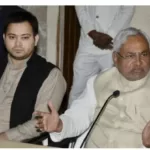In an epochal stride that resonates with transformative symbolism, the venerable echelons of Indian diplomacy welcome a watershed moment as Geetika Srivastava, an eminent luminary within the Indian Foreign Service, ascends to the vanguard of leadership at the Indian mission in Islamabad, Pakistan. Distinguished by her credentials as the incumbent joint secretary at the Ministry of External Affairs headquarters, Srivastava’s forthcoming stewardship heralds a new era in cross-border diplomatic discourse.
Anointed to assume the mantle of India’s Chargé d’Affaires, Srivastava assumes the mantle with poised gravitas, stepping into the esteemed shoes of her predecessor, Suresh Kumar, who is slated to transition back to New Delhi. A scion of the 2005 Indian Foreign Service cadre, Srivastava presently exercises her diplomatic acumen as a joint secretary within the Indo-Pacific division of the Ministry of External Affairs.
This monumental transition ensues against the backdrop of the recalibrated diplomatic dynamic that has permeated the Indian-Pakistani entente since August 2019. The apex echelons of both the Indian and Pakistani diplomatic missions, ensconced in Islamabad and Delhi respectively, are presently guided by their respective Charge d’Affaires, a testament to the contours of a diplomatic landscape rendered intricate by the reverberations of geopolitical impetus.
Srivastava’s imminent advent as the torchbearer of Indian diplomatic representation is poised to engender a transformative trajectory, exemplifying the undaunted sagacity of Indian female diplomats. Symbolic of the heightened resonance of this appointment is the esprit of her assuming this mantle within a geopolitical terrain characterized by historically enmeshed diplomatic complexities.
Anticipated to imminently assume her role as the harbinger of Indian diplomatic articulation in Islamabad, Srivastava’s enunciation as the inaugural woman at the vanguard of India’s diplomatic expanse in Pakistan augments the indelible footprint of Indian diplomacy. A coterie of those conversant with these developments affirmed her imminent arrival on this pivotal assignment.
As the curtains part on this consequential chapter, it is Srivastava’s calibrated stewardship that promises to be a pivotal fulcrum in defining the parameters of bilateral engagement between two nations whose histories and destinies have often entwined in complex narratives.






